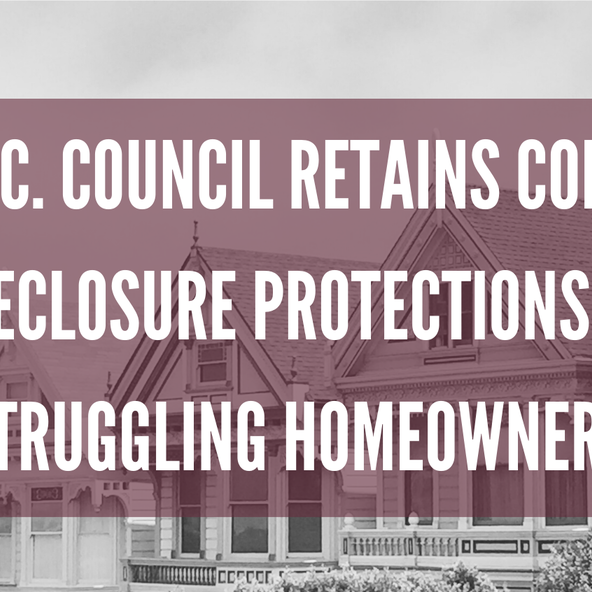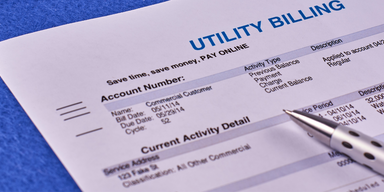
Last week, the D.C. Council unanimously passed the Coronavirus Support Emergency Amendment Act of 2020, a comprehensive emergency bill that is the fourth in a series of omnibus emergency bills. In an effort to consolidate and (in some cases) amend the policy changes passed since the start of the public health emergency, the Act repeals and replaces all prior emergency measures, as well as incorporating further changes and additions.
The newly-passed legislation retains the core emergency foreclosure protections for District homeowners that were encompassed in the Foreclosure Moratorium Emergency Amendment Act of 2020, with some limitations. It prohibits mortgage foreclosure sales – as well as the initiation of new mortgage foreclosure actions – during the period of the District’s public health emergency and for 60 days after. In addition, foreclosure sales based on unpaid condominium fees are prohibited during the public health emergency and for 60 days after, but the process leading up to the sale can be initiated at any time. Both the mortgage and condominium foreclosure protections are limited to owner-occupied homes.
The Council also retained the mortgage relief provision of the prior-passed emergency legislation, with some changes. That provision requires mortgage companies to develop mortgage “deferment” (otherwise known as forbearance) programs to provide at least a 90-day break from principal and interest payments – together with a break from fees and resulting negative credit reporting – to homeowners who can demonstrate a financial hardship caused by the health emergency. Homeowners who were already in foreclosure prior to the health emergency are ineligible. The deferred payments must be paid back after the end of the deferment period within a “reasonable time” by agreement between the borrower and the mortgage company. If the borrower and the mortgage company cannot agree on a reasonable time for repayment, the deferred payments are to be due 3 years after the end of the deferment period or at the end of the loan term, whichever is earlier. Homeowners whose applications for deferment are denied can file a complaint with the D.C. Department of Insurance, Securities, and Banking (DISB).
We commend the D.C. Council for including and retaining these important protections for homeowners as part of its continuing emergency response.




